Nowadays, whether you're browsing your favorite health and fitness blog, watching a workout video on YouTube, or simply just following your doctor's advice for getting your weight back on track, it seems like protein's all the rage — and it's not hard to see why.
It's now well-known that you need protein's amino acids in order to build muscle, maintain a healthy body weight, and regulate several of your body's key functions. The growing popularity of protein powders and shakes is nothing but ulterior proof that the world is more focused on this nutrient than ever.
But is there such thing as too much protein?
Why do we need protein?
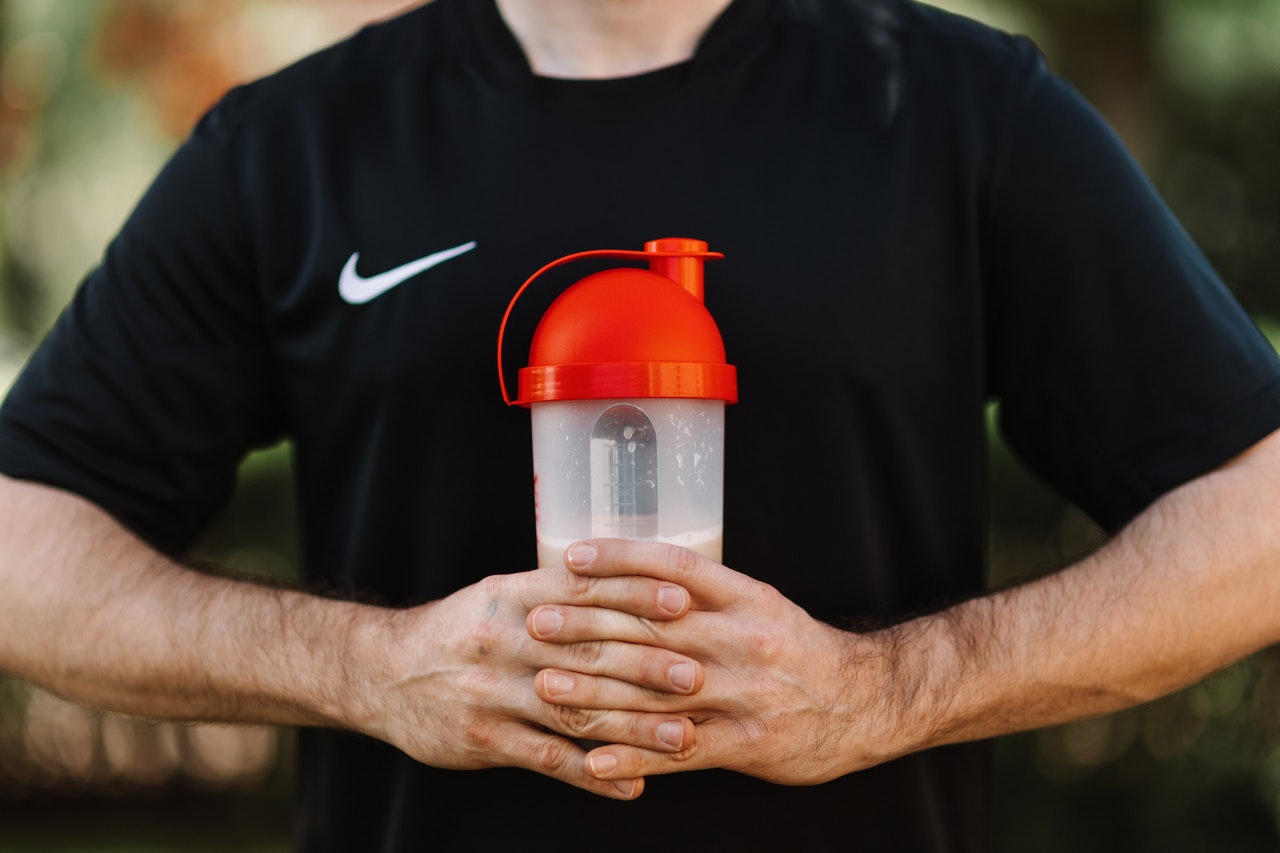
Protein is one of the three macronutrients our body needs for energy and it is responsible for building and repairing tissues, making hormones, making enzymes, and providing the structural framework for some of our major organs. All foods, from arugula to zucchini, contain a certain amount of protein, but some types of food (like meat and beans, for example) are definitely better sources than others.
Why use protein shakes?
So, if protein is found in all the foods we consume, why are protein powders so popular?
To put it simply, drinking protein shakes is the most efficient way to ensure you're getting an adequate protein intake. It saves us the trouble of planning our meals in advance and rushing to get a protein-powered healthy meal after our workouts, so that we can reap all the benefits of this macronutrient without spending hours in the kitchen.
Not to mention, most shakes come in delicious flavors that make healthy eating easier than ever!
So how many protein shakes should I drink a day?
When getting your daily protein in the form of a chocolate protein powder or vanilla-flavored protein powder drink is such an accessible option, it's no wonder that more and more people are reaching for a quick fix of protein smoothie multiple times per day.
In the case of protein, however, more doesn't necessarily mean better.
Generally speaking, we would recommend not going over two protein shakes per day — keep reading to find out why!
1. How much protein do I need?
Before you load up your smoothie with another scoop, you should be aware of how much daily protein you really need to build muscle and keep the hunger at bay.
Generally speaking, your specific protein requirements will change based on your activity level — it goes without saying that a sedentary office worker won't be needing as much protein as a professional athlete!
The general rule of thumb is that a healthy individual who's not training in the gym 24/7 should aim to get 0.8 grams of protein per kilogram of body weight. Athletes, on the other hand, will require a higher intake for building muscle and balance their energy expenditure, typically around 1.3 to 1.8 grams of protein per kilogram they weigh.
2. How much protein is in a protein shake?
Most brands opt for including between 20g and 25g of protein in their formulas, as this is believed to be the optimal ratio for maximizing muscle protein synthesis.
3. How much protein shake is too much?
If you consume more protein than your body requires on a daily basis, you may run into the risk of experiencing intestinal problems like indigestion and diarrhea, nausea, and even more serious health issues such as cardiovascular disease and liver problems in the case of chronic overconsumption.
So, if you weigh 70kg for example, you'll need approximately 55g of protein per day, which is the equivalent of two and a half protein shakes with 20g protein per shake. If we take the rest of your daily calories into account, having more than two shakes a day might become problematic in the long run.
Can I drink protein shake twice a day?

After calculating your specific protein requirements for your weight and activity level, you can decide whether you'd want to split your protein intake between three square meals or getting most of the protein your body needs from shakes instead.
There is no scientific evidence stating that drinking more than one protein drink per day can be harmful, as long as you are staying within your daily protein requirements. Two protein-heavy meals plus a protein smoothie should be enough for most people to reach their recommended intake, but if you prefer having two protein shakes daily with a balanced dinner at the end of the day, for example, that would still be healthy.
Protein Shakes FAQs
How many protein shakes a day to lose weight?
Incorporating protein-heavy meals into your fitness regimen can help you lose weight by making you feel fuller while eating fewer calories.
Starting your day with a protein shake or a protein smoothie packed with greens will make you feel full and energized throughout the day — just make sure you're not adding sugar or fatty milks to your blend!
How many protein shakes a day to gain weight?
Those looking to gain muscle mass, on the other hand, may find more benefits in adding a second clean shake to their diet. The best time to have your first blend of the day is right after a weight training workout, while your second shake is best consumed after a light, healthy lunch.
Keep in mind that protein shakes alone can't be miracle workers — lifting heavy is what will ultimately give you the result you want!
How many protein shakes a day when bodybuilding?
Bodybuilders should aim to get a much higher amount of protein throughout their day.
Experts recommend a limit intake of 2g of protein per kilo for athletes, which is more than twice the recommended amount for sedentary men. Up to three protein shakes per day might be appropriate for short-term bodybuilding goals, although you should always aim to get a good amount of protein through square meals too!
How many protein shakes a day for a woman vs a man?
The recommended protein intake is based on weight and activity levels rather than gender or age.
The best way to calculate the optimal amount of protein per day for your fitness goals is to multiply 0.8g to 1g of protein by your weight in kilograms.
Vegan Protein vs Whey Protein

Let's finish off by comparing vegan protein to the popular whey protein — which one is better for building muscle, and losing weight?
Both whey and pea protein contain a good amount of protein, but the former (as a dairy byproduct) is unfortunately associated with a higher risk of developing breast cancer, prostate cancer, and acne. Plant-based proteins, on the other hand, have not been shown to pose any unnecessary risk to our health, and that is why our Organic Vegan Plant Protein Powder is made of 100% pure plant ingredients with no hidden nasties.
Boasting 20g of delicious, creamy vanilla pea protein per serving, this formula is the perfect choice for health-conscious individuals who want nothing else but the clean, pure goodness of plant protein — and a good amount of energy-boosting iron too!


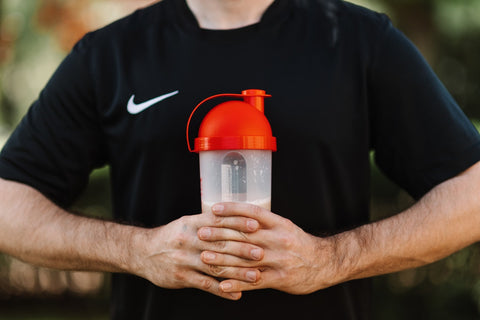




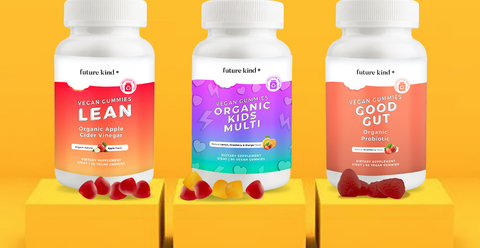
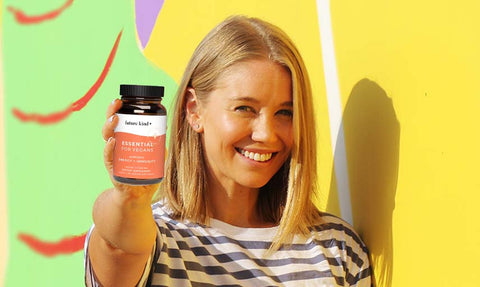
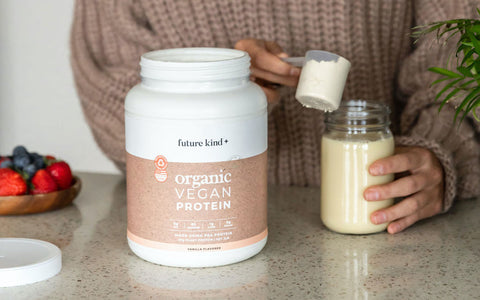
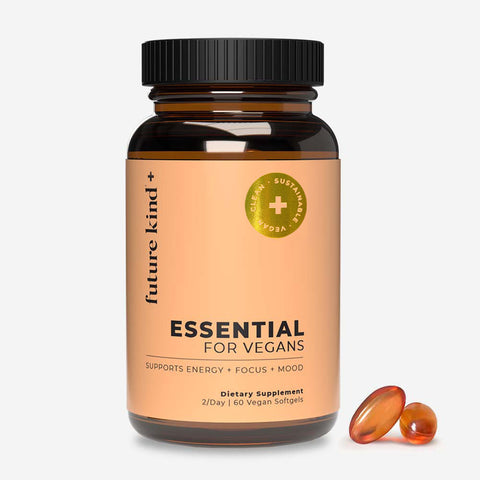
Comments (0)
There are no comments for this article. Be the first one to leave a message!